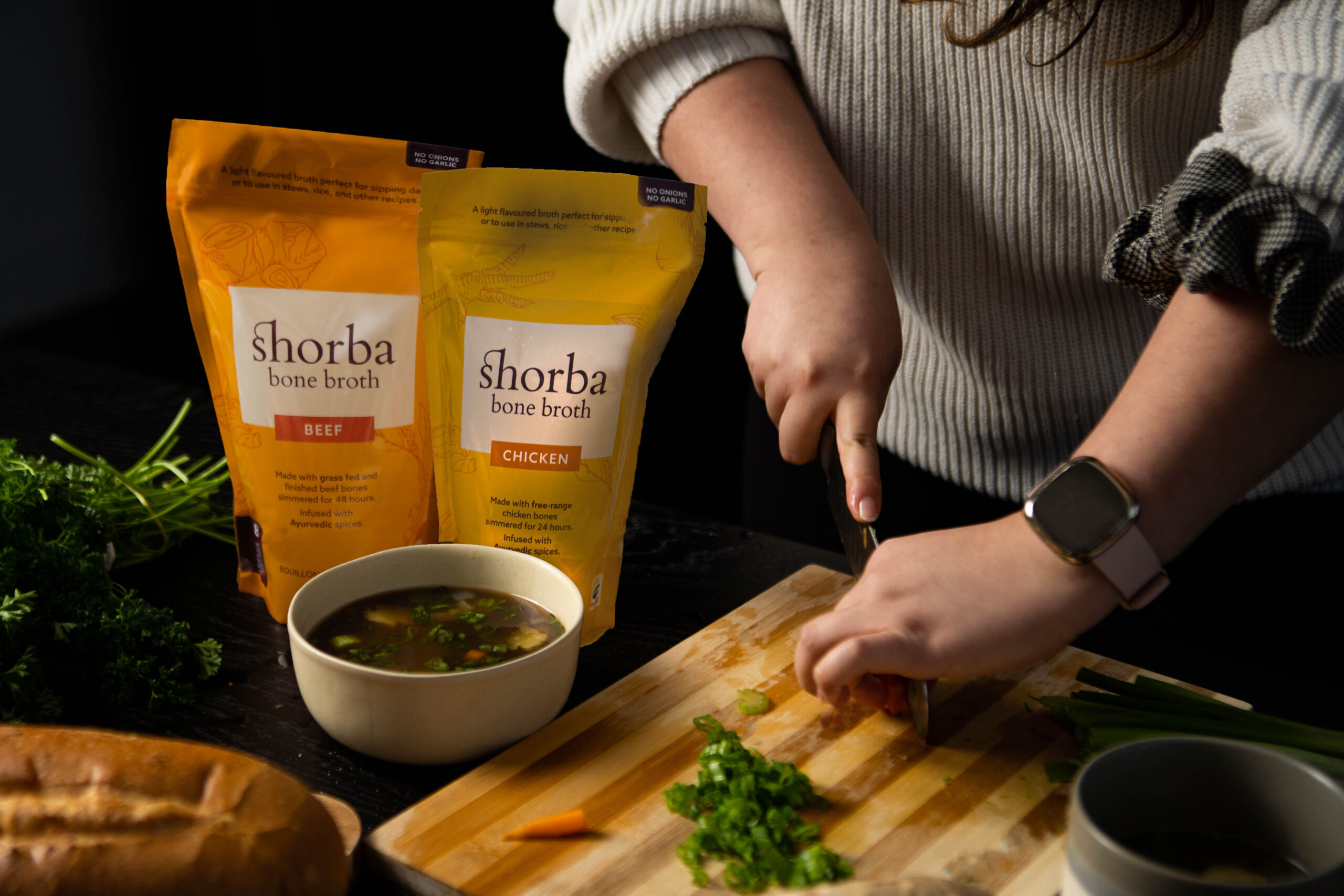Bone Broth for Infants: What Amount Is Right To Serve?
Bone Broth for Infants: What Amount Is Right To Serve?
Blog Article
The aValue of Healthy Food: Why Bone Broth Is a Great Option for Babies
Bone broth stands out as a nutrient-dense option, offering important vitamins and minerals that sustain growth and growth. What are the ideal means to introduce bone broth to your little one?
Nutritional Advantages of Bone Broth for Infants
When you introduce bone broth to your baby's diet plan, you're giving a nutrient-dense food that supplies many health advantages. Loaded with necessary minerals and vitamins, bone broth consists of calcium, magnesium, and phosphorus, which support your baby's expanding bones. It's likewise rich in collagen, helping in the advancement of healthy skin, joints, and connective cells.
Furthermore, bone broth is an outstanding resource of amino acids like glycine and proline, which play a considerable role in general growth and muscle mass advancement. These nutrients aid promote a solid immune system, establishing a solid structure for your infant's health.
Additionally, bone broth is very easy to digest, making it a mild alternative for your child. By including this wholesome food right into their meals, you're ensuring they get vital nutrients necessary for their overall well-being. So, go in advance and make bone broth a staple in your baby's diet plan!
Just How Bone Broth Supports Digestion
Bone broth is packed with vital nutrients that can actually benefit your child's digestion. It promotes digestive tract wellness and aids with nutrient absorption, making it an excellent addition to their diet. By including bone broth, you're setting the stage for a healthier digestive system.
Nutrient-Rich Structure
One of one of the most nutrient-rich foods you can introduce to your infant's diet regimen is bone broth, which is packed with necessary minerals and amino acids that sustain healthy food digestion. Rich in collagen, bone broth aids reinforce your infant's intestine lining, making it much easier for their body to take in nutrients. It provides jelly, which assists in breaking down proteins, promoting smoother digestion. In addition, the broth consists of necessary electrolytes like potassium and magnesium, guaranteeing your infant stays hydrated and balanced. The amino acids, such as glycine and proline, play a crucial duty out of commission cells and sustaining overall health and wellness (chicken bone broth). By incorporating bone broth right into your child's dishes, you're providing a wholesome food that supports their digestion system effectively.
Promotes Intestine Wellness
As you present bone broth into your baby's diet plan, you'll discover it not only nourishes but also advertises intestine wellness properly. Rich in gelatin, bone broth assists calm the digestive system, minimizing swelling and supporting a healthy and balanced digestive tract lining. In addition, the amino acids located in bone broth, such as glycine, aid in digestion and can help protect against usual tummy problems.
Aids Nutrient Absorption
Introducing bone broth not just sustains intestine wellness but also plays a significant duty in helping vitamins and mineral absorption. When you offer your baby bone broth, you're providing an abundant source of minerals and amino acids that enhance their gastrointestinal procedures. The jelly in bone broth aids to relieve the digestive tract lining, improving its capacity to take in essential nutrients.
Strengthening the Body Immune System With Bone Broth

In addition, bone broth consists of glycosaminoglycans, like glucosamine, that can enhance the body immune system's capacity to operate properly. This means it not only aids in constructing defenses however additionally help in healing from diseases. By incorporating bone broth into your infant's diet plan, you're offering a natural source of nourishment that promotes wellness. So, consider making bone broth a staple in your baby's dishes, as it can play a vital duty in their immune health and wellness and advancement.
Easy Ways to Incorporate Bone Broth Into Child's Diet plan
Incorporating bone broth right into your infant's diet can be simple and satisfying. Begin by mixing a tiny amount of bone broth into pureed vegetables or fruits. This includes flavor and nutrients without overwhelming your youngster. You can also make use of bone broth as a base for soups or stews that you plan for the household, ensuring your child gets a taste of delicious, well balanced meals.
Another choice is to offer bone broth on its very own. Warm it up and supply it in a sippy cup or little dish-- it's a terrific method to present brand-new tastes. If your child enjoys grains, think about cooking rice or quinoa in bone broth as opposed to water for added nutrients. Finally, you can freeze bone broth in ice cube trays, making it simple to include a cube to different dishes whenever you want. These approaches will help your baby profit of bone broth easily!
Homemade vs. Store-Bought Bone Broth: What to Pick
Which is better for your child: homemade or store-bought bone broth? Self-made bone broth uses you full control over the active ingredients.
On the various other hand, store-bought options are convenient and conserve you time. However, they frequently include chemicals and helpful hints might not match the depth of taste and nutrition you obtain from homemade broth. If you choose store-bought, search for brands that are natural and without ingredients.
Inevitably, if you have the time and sources, homemade bone broth is the superior selection for your infant's wellness. If you're short on schedule, select a quality store-bought alternative as a backup.
Age-Appropriate Bone Broth Offering Recommendations
As your infant expands, it's vital to tailor bone broth offering pointers to their developmental stage. For infants around 6 months, begin with a few spoonfuls of diluted bone broth (chicken bone broth).
Once your child gets to around eight months, you can offer it warm in a sippy cup or add it to soft foods like purees. By the time your youngster is around a year old, consider providing bone broth as a standalone beverage or mixing it into soups and stews. Just see to it to keep the broth low in sodium. Always monitor for any type of responses, and consult your doctor if you have worries about introducing new foods. Enjoy this nutritious addition to your infant's diet plan!
Other Healthy Foods to Couple With Bone Broth for Babies
When you're seeking to improve the nutritional worth of bone broth for your baby, think about combining it with nutrient-dense vegetables like carrots and spinach. Whole grain alternatives, such as quinoa or wild rice, can likewise add texture and fiber. In addition, including healthy protein resources like shredded chicken or lentils will round out the dish nicely.

Nutrient-Dense Veggies
Nutrient-dense veggies are a wonderful addition to bone broth for babies, enhancing both flavor and nutrition. Including veggies like carrots, spinach, and sweet potatoes can improve the vitamin and mineral web content of your broth.
You can quickly blend these veggies right into the broth or serve them as soft, cooked items along with it. This not only introduces brand-new tastes but likewise motivates your little one to appreciate a variety of nutrients. By matching nutrient-dense veggies with bone broth, you're laying the foundation for a healthy diet plan right from the beginning.
Whole Grain Options

Healthy Protein Resources
Bone broth sets incredibly with numerous healthy and balanced protein sources, further improving your baby's diet regimen. Try including soft, prepared lentils; they're nutrient-dense and packed with protein. You can likewise blend in shredded chicken or turkey, which are easy for your child to absorb. If you're seeking plant-based choices, take into consideration mashed tofu or pureed chickpeas-- both offer exceptional healthy protein without overwhelming flavors. Eggs, when introduced safely, are one more great option; they're functional and filled with nutrients. Inevitably, mixing in some well-cooked quinoa can add a good structure and additional protein. By integrating these healthy and balanced protein resources with bone broth, you're offering your baby a well balanced, beneficial dish that sustains their growth and growth.
Regularly Asked Inquiries
Can Bone Broth Reason Allergies in Newborns?
Yes, bone broth can trigger allergic reactions in babies, especially if they're delicate to certain active ingredients. Always consult your pediatrician prior to introducing new foods and screen for any signs of allergic reactions after feeding.
Exactly How Should Bone Broth Be Stored for Babies?
You ought to store bone broth in impermeable containers, either in the refrigerator for approximately a week or in the freezer for approximately three months. bone broth for infants. Constantly thaw it appropriately before offering to your infant
Is It Safe to Offer Bone Broth to Premature Babies?
It's vital to consult your doctor before presenting bone broth to early infants. They'll analyze your baby's details health demands and guarantee it's secure, considering their unique dietary needs and developmental phase. Constantly focus on expert recommendations.
What Are the Signs of Intolerance to Bone Broth in Infants?
When presenting bone broth, expect indications like fussiness, breakout, looseness of the bowels, or throwing up. If your baby reveals any one of these reactions, it's ideal to get in touch with a doctor prior to proceeding to offer it.
Can Bone Broth Be Made Use Of as a Dish Replacement for Infants?
No, you shouldn't make use of bone broth as a dish replacement for infants. It does not have essential nutrients required for their development. Instead, incorporate it into their diet plan along why not check here with balanced meals for included nourishment and flavor.
Report this page